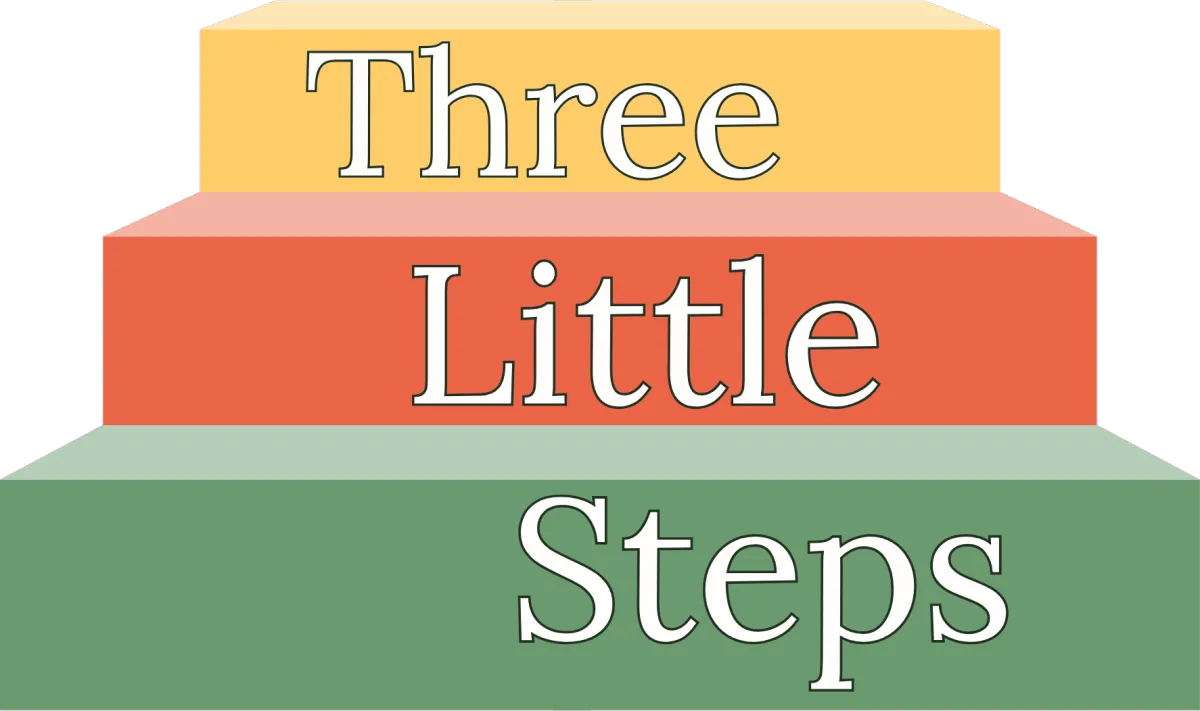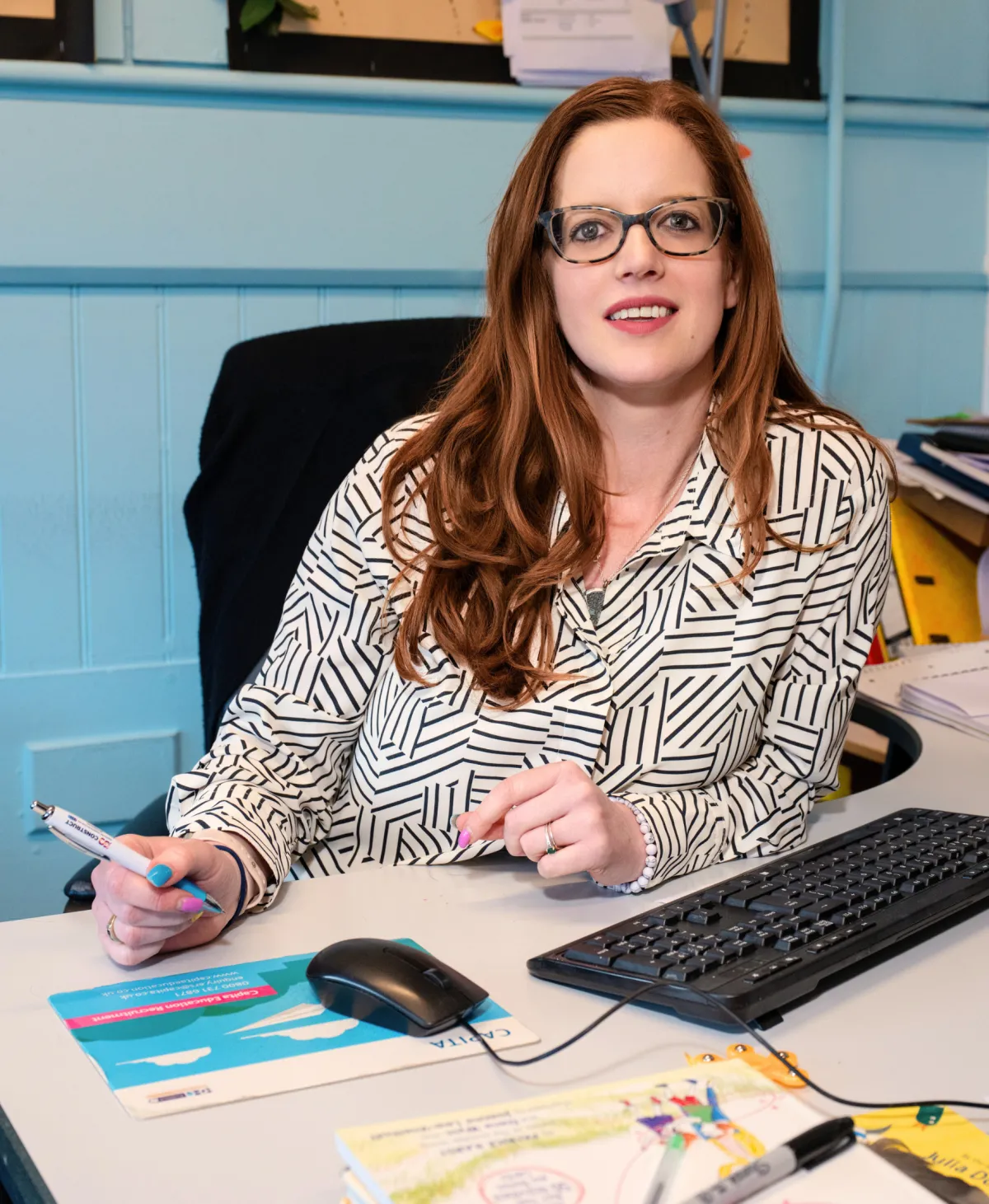
Three Little Steps

Three Little Steps

MEET SARA DONNELLY
YOUR SEND CONSULTANT, ADVOCATE AND TRAINER.
Founder of Three Little Steps, SEN specialist, emotional well-being therapist, and primary school Headteacher. I’ve spent over 15 years supporting children with additional needs across the UK, and bring both professional expertise and personal understanding to every family and school I work with.

MEET SARA DONNELLY
YOUR SEND CONSULTANT, ADVOCATE AND TRAINER.
Founder of Three Little Steps, SEN specialist, emotional well-being therapist, and primary school Headteacher. I’ve spent over 15 years supporting children with additional needs across the UK, and bring both professional expertise and personal understanding to every family and school I work with.
WHY I DO THIS WORK
A Personal and Professional Mission
As a mother and educator, I’ve seen how easily children’s emotional needs can be misunderstood; especially when they’re neurodivergent. My work is grounded in lived experience and a deep belief that every child deserves to feel seen, heard, and supported.
I created Three Little Steps to provide the kind of early intervention, practical support, and empathy I wished had been more widely available when I needed it most.
For Three Little Steps, my mission is to close the gap in support for neurodivergent children by equipping parents and educators with the tools, knowledge, and confidence they need. I offer accessible, evidence-informed training and practical resources that promote neurodiversity-affirming practice; grounded in both lived and professional experience. My approach focuses on early recognition, particularly of often-missed signs in autistic girls, and a commitment to low-cost, high-impact support. The goal is to create inclusive environments where families and schools work together to improve emotional well-being and long-term outcomes for neurodivergent learners.
WHY THREE LITTLE STEPS?
My approach is built on three essential principles:
Trusting partnerships - creating safety and connection
Practical strategies – building tools that actually help
Empowered independence – helping children apply what they’ve learned in everyday life
These steps guide every service I offer, from school training to 1:1 therapy.
WHY I DO THIS WORK
A Personal and Professional Mission
As a mother and educator, I’ve seen how easily children’s emotional needs can be misunderstood; especially when they’re neurodivergent. My work is grounded in lived experience and a deep belief that every child deserves to feel seen, heard, and supported.
I created Three Little Steps to provide the kind of early intervention, practical support, and empathy I wished had been more widely available when I needed it most.
For Three Little Steps, my mission is to close the gap in support for neurodivergent children by equipping parents and educators with the tools, knowledge, and confidence they need. I offer accessible, evidence-informed training and practical resources that promote neurodiversity-affirming practice; grounded in both lived and professional experience.
My approach focuses on early recognition, particularly of often-missed signs in autistic girls, and a commitment to low-cost, high-impact support. The goal is to create inclusive environments where families and schools work together to improve emotional well-being and long-term outcomes for neurodivergent learners.
WHY THREE LITTLE STEPS?
My approach is built on three essential principles:
Trusting partnerships - creating safety and connection
Practical strategies – building tools that actually help
Empowered independence – helping children apply what they’ve learned in everyday life
These steps guide every service I offer, from school training to 1:1 therapy.
MY PROFESSIONAL BACKGROUND
Qualified, Experienced, and Empathetic
I’m a qualified headteacher with extensive experience in special educational needs, particularly autism and neurodiversity in girls. I’ve trained under the Oliver McGowan framework, delivered CPD to schools across the UK, and provided therapy to children through both traditional and animal-assisted approaches.
What makes this so valuable in advocacy, is the ability to bridge the gap between home and school. I understand the language, pressures, and systems within education, as well as the emotional and practical challenges families face. This means I can help both sides work together more effectively; translating needs, easing communication, and guiding collaborative solutions which truly support the child.
My therapeutic work focuses on emotional regulation, resilience, and confidence-building, whether in a 1:1 setting or as part of a wider support team within a school.

MY PROFESSIONAL BACKGROUND
Qualified, Experienced,
and Empathetic
I’m a qualified headteacher with extensive experience in special educational needs, particularly autism and neurodiversity in girls. I’ve trained under the Oliver McGowan framework, delivered CPD to schools across the UK, and provided therapy to children through both traditional and animal-assisted approaches.
What makes this so valuable in advocacy, is the ability to bridge the gap between home and school. I understand the language, pressures, and systems within education, as well as the emotional and practical challenges families face. This means I can help both sides work together more effectively; translating needs, easing communication, and guiding collaborative solutions which truly support the child.
My therapeutic work focuses on emotional regulation, resilience, and confidence-building, whether in a 1:1 setting or as part of a wider support team within a school.

WHAT MAKES ME DIFFERENT
Support Which Understands Every Angle
Many professionals understand the system. Fewer understand how it feels to be inside it. I’ve walked both side, as a headteacher advocating for change in schools and as a parent navigating it all from the outside.
This dual perspective helps me:
Speak the language of both families and professionals
Offer real-world solutions that actually work
Build trust quickly with children, parents, and school teams
WHAT MAKES ME DIFFERENT
Support Which
Understands Every Angle
Many professionals understand the system. Fewer understand how it feels to be inside it. I’ve walked both side, as a headteacher advocating for change in schools and as a parent navigating it all from the outside.
This dual perspective helps me:
Speak the language of both families and professionals
Offer real-world solutions that actually work
Build trust quickly with children, parents, and school teams

DOWNLOAD THIS FREE GUIDE
'INDICATORS OF AUTISM IN GIRLS'
This free, easy-to-use guide outlines key signs of autism in girls — including those that are often missed due to masking and camouflaging behaviours.
So many autistic girls go under the radar, often misunderstood or misdiagnosed.
This resource is designed to help you recognise
some of the subtle indicators and offer timely, meaningful support.

DOWNLOAD THIS FREE GUIDE
'INDICATORS OF AUTISM IN GIRLS'
This free, easy-to-use guide outlines key signs of autism in girls — including those often missed due to masking and camouflaging behaviours.
So many autistic girls go under the radar, often misunderstood or misdiagnosed.
This resource is designed to help you recognise
some of the subtle indicators and offer timely, meaningful support.
Copyright©2026 Three Little Steps™
Empowering families and schools with tools to support neurodivergent children through early recognition, inclusive practice, and practical, compassionate guidance.
Copyright©2026 Three Little Steps™ All rights reserved